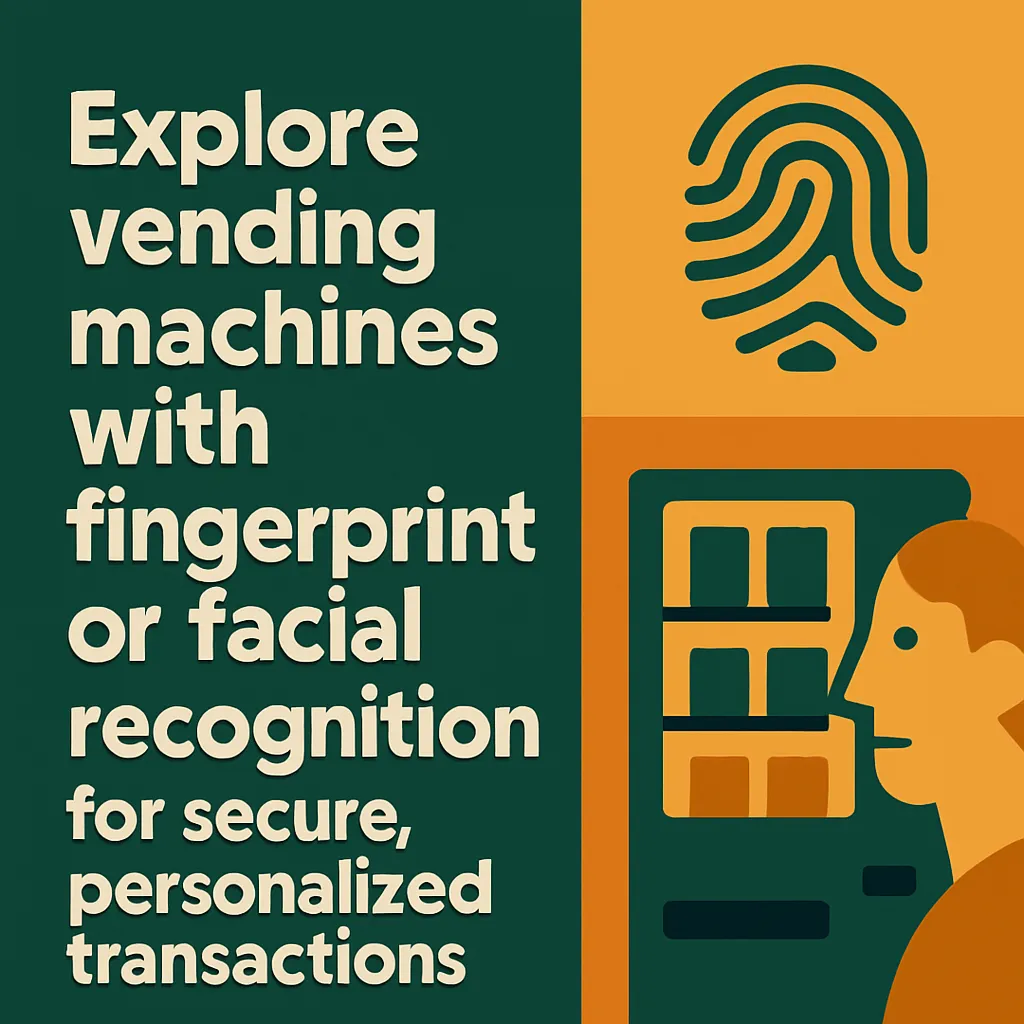Biometric Vending Machines: The Future of Secure Dispensing
Explore vending machines with fingerprint or facial recognition for secure, personalized transactions, revolutionizing self-service retail.
Back to Vending Technology ResourcesExplore vending machines with fingerprint or facial recognition for secure, personalized transactions, revolutionizing self-service retail.
Back to Vending Technology ResourcesBiometric vending machines leverage advanced technology to offer a highly secure, convenient, and personalized purchasing experience unlike any traditional vending solution.
![]() Fingerprint or facial recognition ensures secure access
Fingerprint or facial recognition ensures secure access
![]() Personalized product recommendations based on user data
Personalized product recommendations based on user data
![]() Reduces theft and unauthorized access to valuable items
Reduces theft and unauthorized access to valuable items

Biometric vending machines represent a significant leap in unattended retail, integrating cutting-edge technology to offer unparalleled security and user-centric experiences. These machines move beyond traditional payment methods by authenticating users through unique biological characteristics like fingerprints or facial features. This not only streamlines the purchasing process but also introduces a new level of control and personalization.
One of the primary advantages of biometric vending is its robust security. By requiring a verified identity for every transaction, the risk of theft and unauthorized access is drastically reduced. This makes them ideal for dispensing high-value items, controlled substances, or products in secure environments. Unlike traditional systems that are vulnerable to lost cards or stolen cash, biometric authentication ensures that only registered, authorized individuals can complete a purchase. Such advanced security parallels the benefits found in other modern vending solutions like AI cooler security and loss prevention.
Beyond security, biometric vending machines offer a deeply personalized consumer journey. Once a user's biometric data is linked to their profile (often anonymized for privacy), the machine can remember past purchases and preferences. This allows for tailored product recommendations, loyalty program integration, and even custom pricing, all designed to enhance user satisfaction and drive repeat business. This level of customization provides valuable data insights into consumer behavior, helping to optimize inventory and offerings. This personalization mirrors efforts seen in various industries, drawing parallels to how vending service amenities for leasing are tailored to attract and retain residents.
The speed and convenience of biometric authentication also contribute to a seamless user experience. A quick scan of a finger or face eliminates the need to fumble for wallets, cards, or phones, making transactions faster and more efficient, particularly in high-traffic areas. Furthermore, these sophisticated machines can often integrate with existing access control or employee management systems, creating a unified ecosystem for dispensing products and managing user permissions. This focus on efficiency and integration extends to other high-tech vending solutions, including a clear guide to setup and installation for AI vending coolers, where modern systems streamline operation and user access.
Biometric vending machines are suitable for a wide range of applications, from corporate offices providing employee perks to healthcare facilities managing medical supplies, or even luxury residences offering exclusive amenities. As technology continues to evolve, biometric vending is poised to become an indispensable part of modern self-service solutions, marrying convenience with top-tier security.
Biometric vending machines use unique biological identifiers like fingerprints or facial recognition for secure user authentication and personalized transactions.
They prevent unauthorized purchases and ensure that only registered users can access specific products, making them ideal for controlled environments or age-restricted items.
Common methods include fingerprint scanning, facial recognition, and sometimes iris scanning, offering various levels of convenience and security.
While initial investment can be higher than traditional machines, the enhanced security, reduced theft, and improved user experience often justify the cost.
Personalization allows machines to remember user preferences, offer tailored recommendations, and even manage loyalty programs based on individual purchase history.
They are increasingly found in corporate offices, gyms, secure facilities, luxury apartments, and dispensing high-value or restricted items.
Most systems convert biometric data into encrypted templates rather than storing actual images, ensuring privacy and compliance with data protection regulations.
Yes, many biometric vending solutions can integrate seamlessly with building access control or employee management systems for unified authentication.
Modern biometric sensors are highly accurate and reliable, designed to function efficiently even with slight variations like dirt or minor injuries on fingerprints.
The technology is expected to become more widespread, offering greater convenience, customization, and security across various retail and dispensing applications.